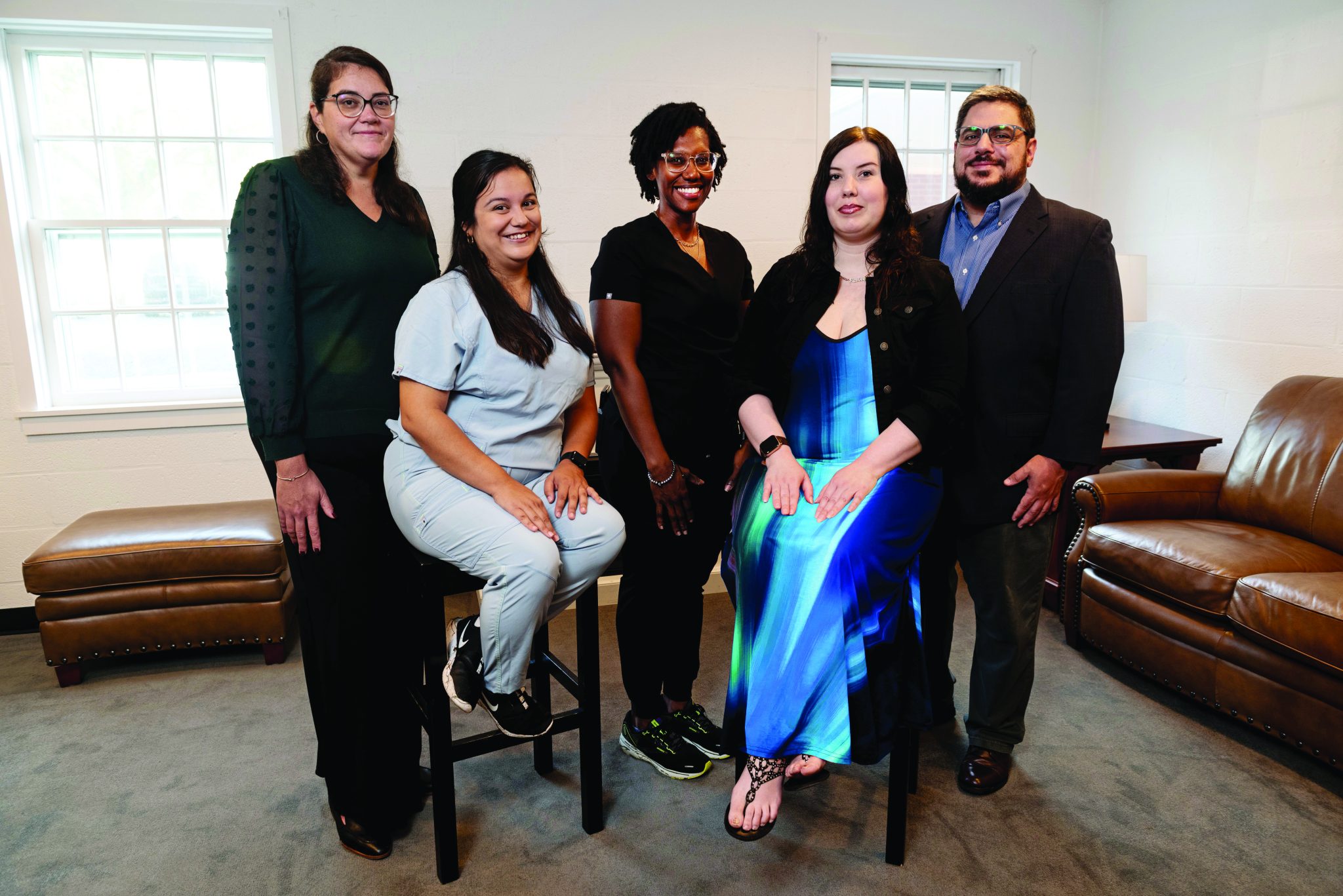Psychiatry
You don’t have to navigate life’s mental health challenges alone. For All Seasons professional psychiatry team is here to help you build a healthier, happier future. Caring for your mental health is integral to your overall wellness. Our skilled psychiatrists, psych nurses, and medical assistants provide supportive evidence-based interventions to help you reach your mental wellness goals and get you on a path to feeling your best.
Psychiatry is a branch of medicine that focuses on diagnosing, treating, and preventing emotional and mental health disorders. For All Seasons is home to one of the largest outpatient psychiatry teams on the Eastern Shore, led by double-board-certified psychiatrist Dr. William Cerrato, our Chief Medical Officer. Embracing a holistic, patient-centered approach, our psychiatry team works hand-in-hand with our clinicians and Rape Crisis Center staff, underscoring our belief in a comprehensive continuum of care.
Through our Open Access program, new patients needing psychiatric evaluations meet with a member of our psychiatry team within 10 days of beginning care at For All Seasons. Beyond evaluations, our medical staff provides medication management aimed at symptom relief and recovery-focused treatment plans. Inquire about in-person or telehealth appointments by visiting For All Seasons during Open Access hours or call 410.822.1018.

In addition to Dr. Cerrato, our dedicated team includes psychiatric nurse practitioners and certified medical assistants. Our integrated approach ensures our patients heal in an environment of expertise and compassionate care.
Psychiatric help is given for several reasons, and not necessarily long-term. Patients meet with our psychiatrists in Easton, MD, or via telehealth, for issues including and not limited to:
Autism spectrum disorder is a condition related to brain development that impacts how a person perceives and socializes with others, causing problems in social interaction and communication. The disorder also includes limited and repetitive patterns of behavior. The term "spectrum" in autism spectrum disorder refers to the wide range of symptoms and severity.
Adjustment disorders are excessive reactions to stress that involve negative thoughts, strong emotions, and changes in behavior. The reaction to a stressful change or event is much more intense than would typically be expected. This can cause a lot of problems in getting along with others, as well as at work or school.
Anxiety disorders encompass a spectrum of mental health conditions characterized by heightened, disproportionate levels of anxiety and persistent worry that extend beyond the normal fluctuations of stress. While occasional anxiety is a common facet of life, individuals experiencing excessive, uncontrollable anxiety that significantly disrupts their daily functioning may be indicative of generalized anxiety disorder (GAD). GAD shares symptoms with related disorders such as panic disorder and obsessive-compulsive disorder, yet each represents distinct clinical entities.
Attention-deficit/hyperactivity disorder (ADHD) is a mental health condition characterized by a persistent combination of challenges, including difficulties in sustaining attention, hyperactivity, and impulsive behavior. This disorder can manifest in various aspects of an individual's life, potentially leading to unstable relationships, suboptimal work or school performance, diminished self-esteem, and other associated issues
Bipolar disorder, formerly called manic depression, is a mental health condition that causes extreme mood swings that include emotional highs (mania or hypomania) and lows (depression). When you become depressed, you may feel sad or hopeless and lose interest or pleasure in most activities. When your mood shifts to mania or hypomania (less extreme than mania), you may feel euphoric, full of energy, or unusually irritable. These mood swings can affect sleep, energy, activity, judgment, behavior, and the ability to think clearly.
Depression is a mood disorder that causes a persistent feeling of sadness and loss of interest. Also called major depressive disorder or clinical depression, it affects how you feel, think, and behave and can lead to a variety of emotional and physical problems. You may have trouble doing normal day-to-day activities and sometimes feel like life isn't worth living.
Obsessive-compulsive disorder (OCD) features a pattern of unwanted thoughts and fears known as obsessions. These obsessions lead you to do repetitive behaviors, also called compulsions. These obsessions and compulsions get in the way of daily activities and cause a lot of distress.
A panic attack is a sudden episode of intense fear that triggers severe physical reactions when there is no real danger or apparent cause. Panic attacks can be very frightening. When panic attacks occur, you might think you're losing control, having a heart attack or even dying.
Post-traumatic stress disorder (PTSD) is a mental health condition that's triggered by a terrifying event — either experiencing it or witnessing it. Symptoms may include flashbacks, nightmares, and severe anxiety, as well as uncontrollable thoughts about the event.
Suicidal thoughts, in the context of mental health, refer to persistent and intrusive contemplation of ending one's own life. Individuals experiencing suicidal thoughts may grapple with feelings of hopelessness, despair, and a perceived inability to cope with overwhelming emotional pain or life challenges. These thoughts can vary in intensity and frequency, ranging from fleeting considerations to more persistent ideation. Suicidal thoughts are indicative of significant emotional distress and are a critical concern in mental health.
These definitions come from the Mayo Clinic
